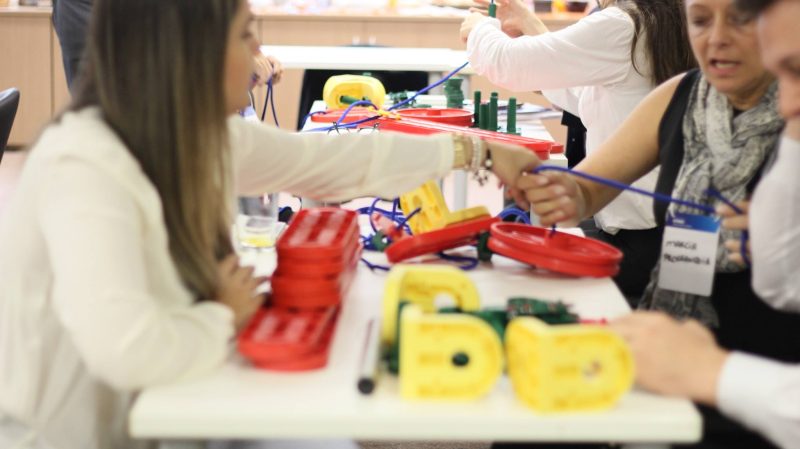Embrace change with training kits that create the right mindsets
The ability to adapt quickly to rapidly changing circumstances has never been as important as during the Coronavirus pandemic. With whole industries suspended, others having to keep up with record levels of demand, and over a billion people worldwide working out of living rooms and bedrooms, there is only one real certainty: nothing will ever be the same again.
Those people and organisations that are able to both adapt to and embrace that change are those best placed to prosper. Think of the restaurants who’ve become food delivery services, or the educators who’ve found new audiences online. But change is rarely easy.
Change management principles can help you create a framework in which to manage change, but you can only embed change by bringing people with you.
In fact, organisations that don’t manage change well risk making things worse than they were before change.

“Here we go again”
At the moment, the need for change is obvious and poignant. But what comes after this crisis passes will undoubtedly require new evolutions. In constantly and rapidly changing environments, employees sometimes grow weary of change and feel it is pointless. Recent research from the Institute of Employment Studies warns that change fatigue can actually cause organisations to stagnate. It warns organisations that they must put the human and emotional aspects of change at the heart of any change strategy if it is to succeed.
But how do you prepare employees for change that hasn’t happened yet? How do you show them that change really works and that they can be a driving force behind it? How do you overcome change fatigue and turn people into agents for change?
Change management activities from MTa give you the tools to let your teams experience change for real, learn from it and then develop the attitudes, skills, and behaviours that help them embrace change. We’ll introduce some of the most relevant project management activities below. But if you’re not sure where to start, it might be easier to give us a call or chat to us and we’ll help.
Core skills like communication and team working are essential to successful change – we cover those elsewhere. In this article we look at specific activities that put your people through the paces of change and give them real learning opportunities.
Feel the change
Digital Display from the MTa Team Kit, is a very effective activity in drawing out some of those emotional responses to change. One of 16 activities in this versatile kit, it replicates both the pain and the reward of successful change.
It underscores the importance of looking at the big picture and tackles the complex issues of individual vs teams success. It explores frustrations when things need to change and the individuals who see that need can’t change anything themselves. The role of the “observer” is crucial. Far from a passive role, the observer can step into any other role and empower others to do the same: becoming agents for change. Being able to make change happen is a key learning outcome, as is having to undo your own work for the greater good.
Words Names, Numbers from MTa Mini’s suite of nine desktop activities is another activity that really gets to grips with change. This activity explores personal attitudes to change and the benefits of diversity. It also deals with what happens when teams merge: often they fail to capitalise on the benefits of enlarged team as they don’t recognise the benefits of change.
And finally among the 53 activities in MTa Insights, there are some which have a major focus on change, like Taller Stack from the Leadership 1 module. This fast-paced team activity underscores some of the functional and dysfunctional behaviours in teams and leaders when living through change. It provides valuable learning on how to manage change, capitalise on expertise, gain commitment to ideas and collaborate with leaders.
And while all these activities are very engaging and hands-on, they are grounded in proven theories around change management like Kotter’s Eight Steps of Change. MTa’s change management tasks explore many or all of these: creating urgency, forming coalitions, creating and communicating a vision for change, removing obstacles, creating short-term wins, building on change and then finally anchoring change in corporate culture.
Reflect on Your Reality
To ensure training participants transfer what they’ve learned around change in your corporate culture, MTa promotes reflection on learning. Every kit includes insightful resources that help participants reflect on what happened in the activities, and to consider the skills, behaviours and attitudes that are necessary to succeed. In a well-facilitated exercise, it is this reflection that provides most of the learning. MTa call this the ‘Learning Arena’ where all participants are encouraged to:
- Identify the positive, indifferent and negative aspects of the activity being reviewed
- Build on positive aspects to make them even more valuable
- Develop ideas to address indifferent and negative aspects
- Evaluate and select ideas to be implemented
- Explore, practise and refine ideas
- Plan the Learning Transfer: how will the learning experience lead to tangible improvements in day-to-day performance..
Participants are encouraged to reflect and think for themselves and then share their perspectives with the group. To help that reflection, each leadership activity comes with learning review sheets that should be completed before group discussion. Download a sample learning review sheet here.
One of the best ways to see these kits in action and to find out which kit(s) are best for you, is to attend one of MTa’s Facilitator Masterclasses. Here you’ll get unique insights from our experienced facilitators on how to run successful sessions, as well as first-hand experience of the kits and your own reflection
Call our friendly team today to find out more, or view the full range of MTa’s learning, development and assessment activities at www.experientiallearning.org.
